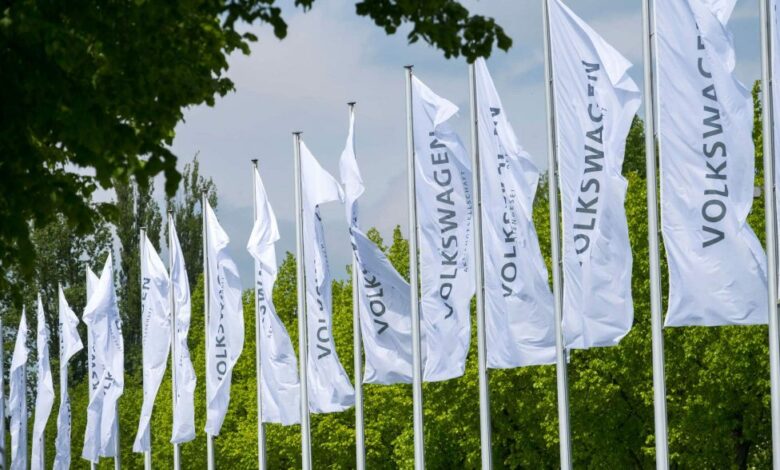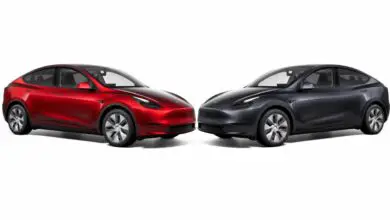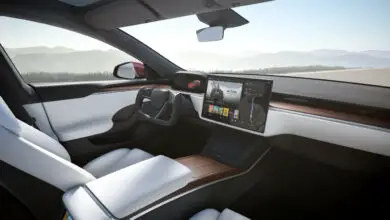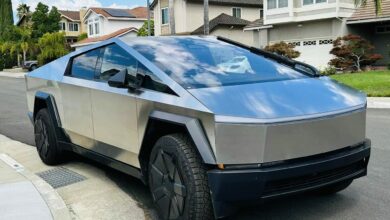Volkswagen’s Battle for Electric Supremacy: Can It Keep Pace with Tesla and Chinese Automakers?
The Race to Dominate the Electric Vehicle Market and Its Impact on Volkswagen and the German Economy

As the automotive world hurtles towards a future dominated by battery-electric vehicles (BEVs), Volkswagen finds itself in a high-stakes race to catch up with industry leaders like Tesla and ambitious Chinese automakers. The outcome of this race could have far-reaching implications for both Volkswagen and the German economy.
During the pandemic, Volkswagen faced a significant setback in the lucrative Chinese auto market. While the world grappled with the challenges of COVID-19, companies like BYD, Nio, and Tesla seized the opportunity to expand their foothold. These competitors nearly doubled the market’s offerings of electric and hybrid vehicles, leaving Volkswagen struggling to keep pace.
Volkswagen’s global sales of battery-electric vehicles have failed to match the meteoric rise of Tesla or the steady growth of BYD. In the second quarter of the year, Tesla emerged as the undisputed leader in the BEV market, delivering a staggering 466,140 units. BYD followed closely with approximately 328,600 units sold, while Volkswagen lagged behind with just around 145,000 sales.
Now, as Chinese automakers and Tesla continue their expansion into the European market, Volkswagen faces fierce competition. This competition poses a significant risk to the German economy, the largest in Europe. Foreign Minister Annalena Baerbock emphasized the gravity of the situation at the recent Munich Car Show, stating, “The auto industry is faced with the question of whether and how we will be a global leader in the future. For our nation, where the auto industry accounts for a large share of value creation, this is not just an economic issue, but also a question of security.”
Adding to Volkswagen’s challenges are Tesla’s impending release of the highly anticipated Cybertruck and the refreshed Model 3 Highland. These moves are set to intensify pressure on Volkswagen to produce compelling and competitive BEVs, particularly in the wake of Tesla’s price reductions across its entire lineup throughout the year.
Moreover, the global electric vehicle market is growing at a rapid pace. Bloomberg NEF data predicts that BEV sales will nearly match traditional gasoline car sales by 2030 and surpass them altogether by 2031.
However, Volkswagen’s foray into the world of BEVs has not been without hurdles. In 2015, the company admitted to cheating on emissions standards with its “clean diesel” products, leading to over $9.5 billion in settlement payments to vehicle owners. Even today, the automaker has not fully recovered production levels across vehicle segments in Germany to pre-pandemic levels.
Hildegard Müller, the leader of the German Association for the Automotive Industry (VDA), acknowledges the mounting pressure, saying, “Our international competition is not sitting idle. Our companies primarily generate profits abroad, helping to sustain jobs in Germany. But the pressure is rising due to weak economic growth and conditions that are no longer internationally competitive.”
In stark contrast, during the same period, Tesla has expanded significantly, establishing new production facilities in Austin, Texas, and Shanghai, China, and making plans for a factory in Berlin, Germany, as well as an upcoming one in Mexico.
Recent years have seen a shake-up in Volkswagen’s executive leadership, with CEO Oliver Blume assuming the role after Herbert Diess. Blume, who also heads Porsche, has been working on forging new partnerships and addressing issues within Cariad, the automaker’s in-house software developer.
Just this week, a German publication reported potential job cuts at Volkswagen’s BEV plant in Zwickau, Germany, possibly affecting up to 2,500 employees. This facility, exclusively producing BEVs since last January, rolled out a total of 218,000 units last year.
Volkswagen’s ambitions extend beyond Germany, with plans to build a $2 billion BEV factory in South Carolina, scheduled for production in 2026. The plant will revive the Volkswagen Scout as a BEV brand and introduce other electric vehicles in the SUV and pickup segments.
In this high-stakes race to catch up with Tesla and emerging Chinese automakers, Volkswagen faces immense challenges and opportunities. The world watches with anticipation to see if this automotive giant can pivot successfully towards an electrified future.



